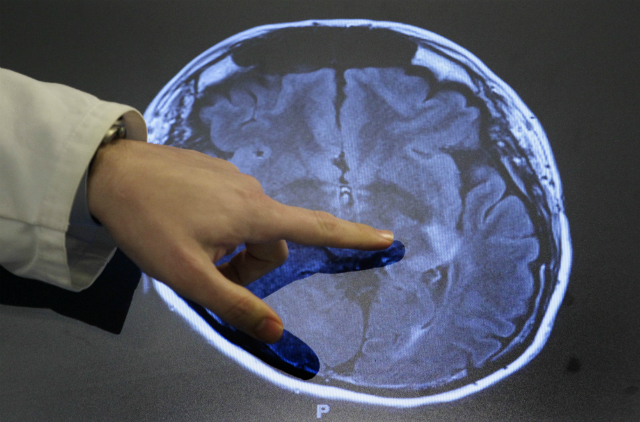AP Photo / Patrick Semansky
Francis Shen says that he often calls neurolaw a "new" and "emerging" field, but even he doesn’t completely believe that. Shen is an associate law professor at the University of Minnesota and executive director of education for the MacArthur Foundation Research Network on Law. He says we’ve been using neuroscience in law for decades, but there have been some major developments over the last few years. For example, brain science is increasingly informing how we view criminals — especially adolescents — and how we sentence people. We talk with Shen about the influence neurolaw has on society and how the field has developed over time.
Three Takeaways
- In most parts of the country, adolescents are either tried as juveniles or adults. But that might not be the best policy. Shen points to evidence showing that adolescents don’t have fully-developed brains. Because of that, Shen says we need a way of categorizing teens - and even those in their early 20s - in their own separate treatment group, rather than forcing them into a place they might not belong.
- Neuroscience might affect many aspects of the law, but it’s going to take a while before it becomes commonplace. While an attorney might see a brainscan as a compelling piece of evidence, Shen worries that judges and juries might make decisions without completely understanding nuances around the science.
- One of the biggest changes in neurolaw might come if we were to decide that psychological injuries are just as serious as physical injuries. Shen says courts sometimes don’t compensate people who develop PTSD as a result of an accident in the way they would if the person had broken their leg.
More reading
- The BBC looks into San Francisco's Young Adult Court, which sees adolescents specifically in the 17-25-year-old range. Most traditional systems categorize convicted criminals as either juveniles (anyone under the age of 17) or adults.
- Want to know more about the history of neuroscience in the law? Shen writes about it extensively here.
- Listen to our segment with Francis Jensen, who explains how a developing brain affects teenage behavior.


